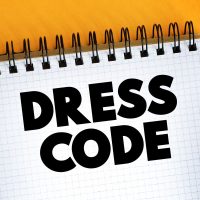When Does a Dress Code Become Sex/Gender Discrimination?

California law prohibits sex and gender discrimination in the workplace. Sometimes, discrimination is clear: A company has a policy or clear practice of hiring and promoting only male or heterosexual workers. Workplace discrimination can, however, be sneakier, camouflaged by policies that look fair or neutral from the outside. Even a dress code that applies to all employees can constitute unlawful workplace discrimination, depending on the circumstances. Continue reading for a discussion of when and how a dress code may constitute sex and/or gender discrimination. If you believe you’ve witnessed or been the victim of discrimination in your workplace, contact a passionateSouthern California employment law attorney for help.
Dress Codes Are Generally Lawful
Dress codes are not, per se, illegal. The law recognizes that employers have the right to impose reasonable restrictions on employee apparel and appearance in order to foster the work environment that suits their business. Employers can set requirements or limitations to promote safety, professionalism, uniformity, and a favorable image to customers and clients. As discussed below, dress codes may even set different requirements for male and female employees.
When Dress Codes Are Illegal: Burdensome or Promoting Harassment
Dress codes are lawful up to a point. In California, dress codes may cross the line into illegal sex or gender discrimination when they overly burden one sex or gender. A policy that requires women to wear formal dresses or keep long hair and style it, while allowing men to keep short hair and dress casually, would be discriminatory. If the policy allows men to keep short hair without restriction, women should also be allowed to keep low-maintenance styles, even if there’s a general “professionalism” requirement.
Policies that foster sexual harassment are also illegal. An employer cannot, for example, force women to wear revealing or sexualized clothing without a legitimate business purpose.
California Employers Cannot Force Women to Wear Skirts
California law specifically prohibits one historical dress code practice: Preventing women from wearing pants. Employers can set rules and guidelines for suits, pantsuits, and skirt outfits, but they cannot outright prevent women from choosing the pants option. If you are being forced to wear a dress or skirt at work, you are being subjected to unlawful discrimination.
Gender-Specific Dress Code Policies May Be Allowed
Notably, even though gender-specific dress code policies clearly affect employees of different sexes and genders differently, courts have allowed them. For example, a dress code in a formal work environment may prevent male employees from wearing makeup, facial jewelry, or nail polish. Dress codes may be crafted to suit the workplace environment, so long as they burden all employees equally–for example, a restaurant that requires women to dress as “serving wenches” and men to dress as traditional “squires” or “peasants.” So long as the requirements are roughly equal, the fact that they are not the exact same across sex or gender is not per se unlawful.
Restrictions on hairstyles are also permitted, up to a point. An employer may set certain requirements or limitations on hairstyles for men and women, provided that they generally burden everyone equally. Employees can request an accommodation for religious reasons or other personal rights. Additionally, California now prohibits hair code policies that unequally burden certain employees based on their race or national origin–policies that ban “natural” hairstyles that disproportionately affect people of color are no longer permitted.
Employees Can Choose the Dress Code That Corresponds to Their Gender Identity
Notably, even if a workplace dress code sets gender-specific requirements, California workers have the right to express their own gender identity. An employer cannot force an employee to don a uniform that does not correspond to their personal gender identity or gender expression. If you identify as female and your employer forces you to wear the male uniform, you might have a claim for unlawful discrimination.
Contact a Seasoned Employment Law Attorney For Help With a Sex or Gender Discrimination Claim in Southern California
For help protecting yourself and recovering compensation after experiencing workplace discrimination in Southern California, call Ochoa & Calderón to discuss your case with a knowledgeable and successful California labor and employment attorney. Call 951-901-4444 in Riverside or 844-401-0750 toll-free throughout Southern California.
